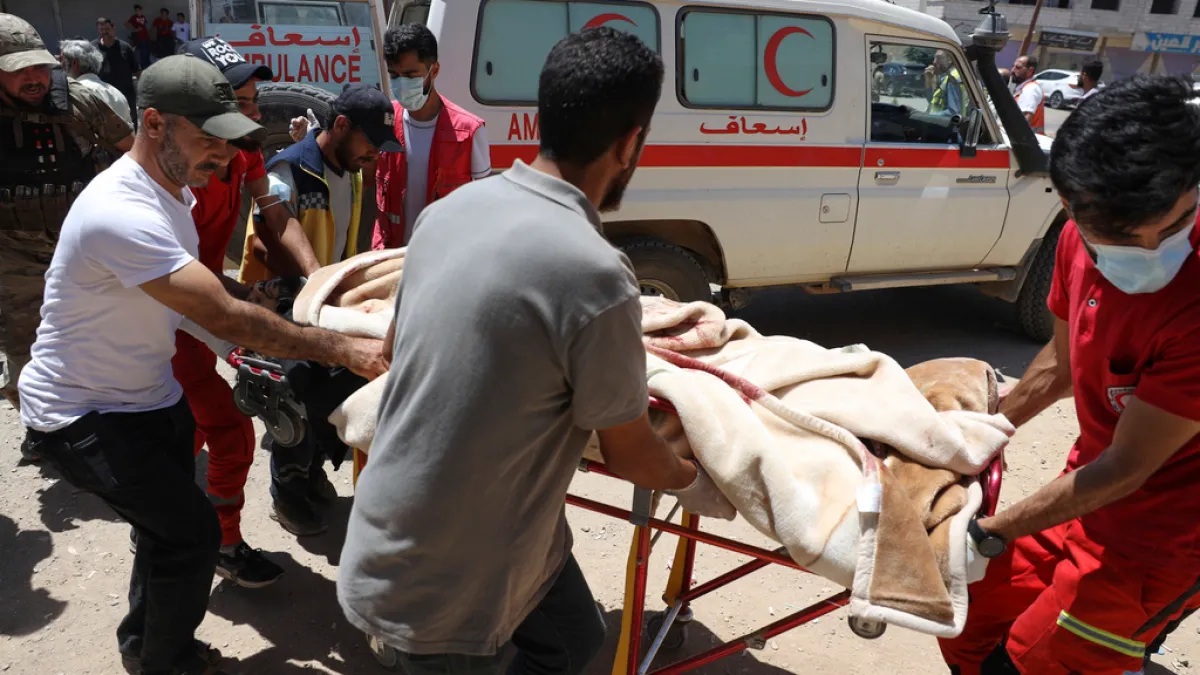Fighting has reignited in the southern Syrian city of Suwayda, where Druze armed groups and government forces are clashing once more despite a ceasefire declared just hours earlier.
The truce, announced by the Syrian government on Tuesday evening, collapsed by Wednesday morning as violence returned to the city’s streets and outskirts, prompting mounting concerns over civilian safety and regional escalation.
Syria’s Ministry of Defense blamed “lawless groups” for breaking the ceasefire, accusing them of targeting government troops.
Military officials claimed their forces only responded in self-defense, following engagement protocols aimed at minimizing civilian casualties.
However, according to Al Jazeera’s correspondent Osama Bin Javaid, reporting from Damascus, the situation deteriorated rapidly following the announcement.
“Things spiraled out of control once again,” he said, pointing to a heavy resurgence of clashes in and around the city.
The death toll remains disputed. Syrian officials have confirmed dozens of casualties, while the UK-based Syrian Observatory for Human Rights reports more than 250 deaths since the outbreak of violence on Sunday. The observatory’s tally includes 138 government soldiers and security personnel, as well as four children and five women. Disturbingly, it also reported at least 21 people killed in apparent “field executions.”
While sporadic gunfire continues in central Suwayda, heavy fighting has been concentrated on the city’s outskirts, where Druze fighters have battled government troops in increasingly intense confrontations.
Meanwhile, Israel has entered the fray with a series of airstrikes targeting Syrian military positions near Suwayda.
At least seven Israeli strikes were reported on Wednesday alone.
Israel has long positioned itself as a protector of Druze communities across the region and appears to be acting under that rationale.
Israeli Defense Minister Yoav Gallant issued a stern warning to the Syrian government on Wednesday.
He demanded the withdrawal of Syrian troops from Suwayda or face escalated Israeli military action.
“Israel will not abandon the Druze in Syria,” Gallant said.
“If the message is not understood, we will intensify our response.”
Syria and several Arab countries have condemned Israel’s involvement, calling it a blatant violation of international law and an infringement on Syria’s sovereignty.
The immediate trigger for the unrest appears to be a recent string of kidnappings and retaliatory attacks between local Sunni Bedouin tribes and Druze groups.
Tensions boiled over after a Druze merchant was abducted last Friday along the key highway connecting Damascus to Suwayda.
These incidents reignited deep-rooted animosity between the two communities, which have a long and turbulent history of conflict in the region.
Suwayda is home to the largest Druze population in Syria, with around 700,000 adherents of the minority sect across the country.
The city has remained a relatively autonomous enclave throughout much of the Syrian civil war.
Local militias reportedly often choose to defend their own territory rather than align fully with the central government.
Footage and images of killings and abuse shared on social media have further inflamed tensions.
Bin Javaid noted that the viral content provoked “a flurry of reaction from both sides,” making reconciliation and de-escalation increasingly difficult.
Since the fall of former Syrian President Bashar al-Assad in December, the new leadership has struggled to assert control.
It reportedly took control particularly in areas like Suwayda where the Druze community has resisted integration.
Many within the Druze population remain skeptical of the new government’s ability—or willingness—to protect their rights and interests.
“The Druze have not really accepted the current administration as the one that will look after their aspirations and hopes,” said Bin Javaid.
Attempts at reconciliation in the past have yielded only temporary calm.
In April and May, clashes between Druze fighters and government forces led to dozens of deaths before community leaders and clerics brokered a fragile agreement.
That deal aimed to contain further violence and encourage Druze militias to integrate into the new government’s security framework.
But divisions within the Druze factions over whether to cooperate with the authorities continue to undermine those efforts.
The ongoing violence in Suwayda not only threatens to spiral into wider conflict within Syria but also risks drawing in regional powers like Israel more directly—raising the stakes of an already complex and dangerous situation.







